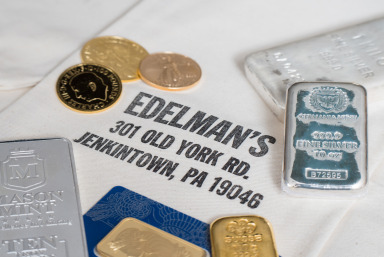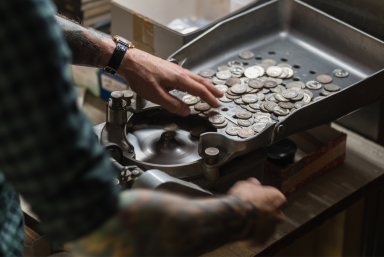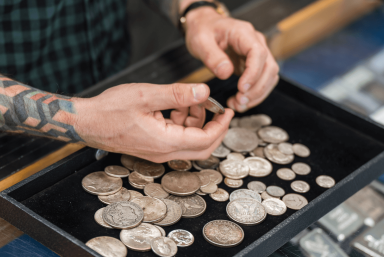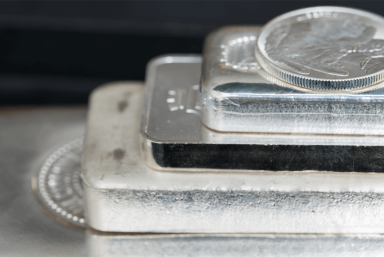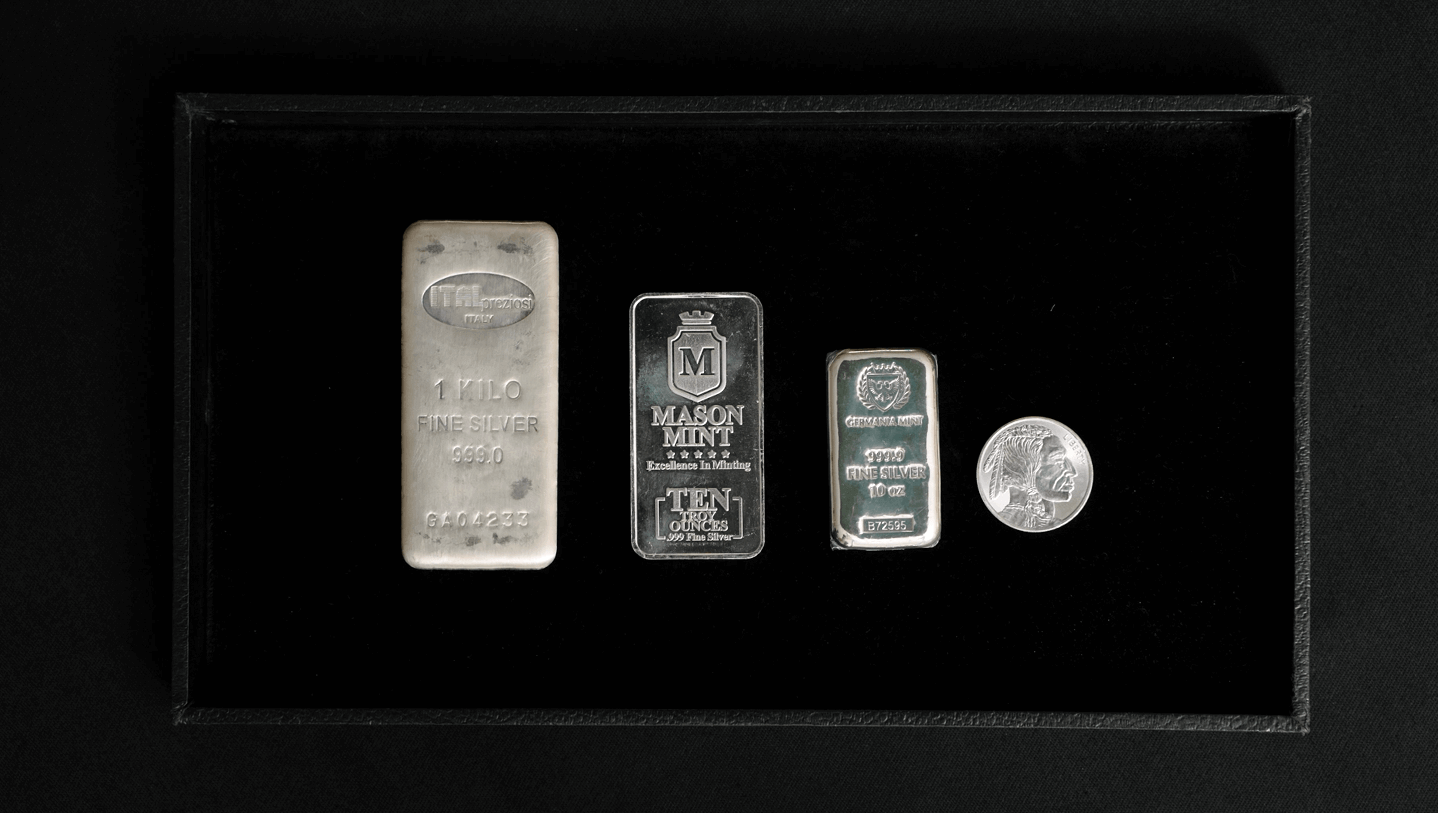
The best thing about gold is that it’s an asset with an almost opposite correlation with stocks and fiat currencies. When stocks' value goes down, gold's value typically goes down. While most people don’t have physical access to some of the precious metals they own, during moments of crisis, being able to pack your assets in a bag provides an extra layer of security.
Also, unlike cryptocurrencies, which have existed since 2008, gold has been a store of value since ancient Mesopotamia (possibly even earlier).
When diversifying assets, you can buy gold. If you’re on the verge of that decision, you’re probably wondering, “Should I buy gold bars or coins?”. Let’s see some of the pros and cons of each.
How to buy gold and silver?
First, we can discuss how to buy gold and silver. When buying precious metals, it’s not best practice to just walk into a jewelry store and make a purchase. Instead, you need to look for a licensed precious metals dealer. These dealers are authorized by government mints and are licensed to sell these coins.
Regardless of whether you’re buying coins or bars, you need to check the dealer's reputation and ensure that it comes with the necessary verification.
For the sake of your security, make sure that the gold that you’re buying comes from a well-known source. While the worth of gold is measured in weight and purity, not all coins/bars are made the same.
What is the downside of buying gold?
There are many reasons to own gold, but what are some arguments against this investment? So, when you ask, “Should I buy gold bars or coins?” you might want to start with a bit simpler question - should I be buying gold, to begin with? Previously, we’ve mentioned that gold is one of the oldest stores of value and historical it increases in value. However, there are some downsides, as well.
- No dividends or income: If you buy stocks that pay dividends or a rental property, you’ll get passive income from it. You’ll only profit from buying gold if you sell it when its cost grows.
- Storage and security costs: Unless you want to keep physical gold in the safe in your home (which some people are not comfortable with), you’ll have to pay for its storage.
These are the two biggest downsides. Some might also add liquidity concerns, economic and industrial factors (you have no control over market forces), etc. Still, the truth is that none of these factors are exclusive to gold.
How much are gold bars worth?
The value of gold bars is determined through three factors:
- Weight: You’re buying gold, not shape, and in a heavier bar, there’s more gold. That much is clear. The weight of these bars is measured either in troy ounces or kilograms (for larger bars).
- Purity: The purity of bars is a huge factor, and it’s usually expressed in carats. If you’re buying an investment gold, you’re aiming for 24 karats (close to 99.99%). The higher the purity, the more valuable the gold.
- Market price: Ultimately, this is the most important factor. The current market price of a troy ounce of gold will determine the ultimate value of the bullion in question.
So, the ultimate equation goes something like this:
- Value= Weight X Purity X Market Price per Troy Ounce
This is what gold bars are worth, and this is what you need to bear in mind when investing in gold bars.
Are gold coins a good investment?
There are many reasons why gold coins are such a great investment. First of all, they’re more liquid than larger gold bars.
Second, they have a collector's value, meaning rare or historic coins may be disproportionally more valuable than their same-weight contemporary counterparts.
Then, coins come in fractional sizes, meaning that if you have less money to invest, you can buy gold in smaller denominations. This compact size of coins also means that you can carry it around more easily, which makes it a tangible asset. You would be surprised at how many people (even today) see having a physical representation of their wealth as a high priority.
The value of gold coins is measured through a similar formula (weight x purity x market price); however, coins can sometimes be more valuable.
The downsides are also the same as with gold bars - storage, market conditions, and premiums over the spot price of gold.
You should take all of this into consideration when buying gold coins.
Why are gold coins more expensive than bars?
It’s more difficult to produce a gold coin than to make a gold bar, which means that this production cost usually ends up as a part of the equation.
Also, there’s a potential numismatic value since some gold coins may have a collector’s value. If they’re historically significant or have a collector's appeal, their cost may drastically surpass the simple formula we’ve mentioned several times before. Every type of coin has a limited mintage, which means that every coin has the potential to fall under this category (although this won’t happen to every coin).
Then, there’s the fact that you get smaller denominations, which usually come with a bit higher price. Just go to the store and look around. You’ll find that a larger package of the same product usually comes with a proportional discount. Gold is no different!
So, should I buy gold bars or coins?
The simple answer to the question “Should I buy gold bars or coins?” is - it depends!
Gold bars come with lower premiums, are easier to store, and are easier to find a higher purity option. This means you’ll have an easier job calculating the total value you’ve stored in this asset.
Conversely, coins are more liquid, have numismatic value, and come in smaller sizes. This means you can start buying gold even if you still don’t have money for a gold bar.
Now that you know the difference, it should be easier to decide.
Visit us to discuss your next purchase of gold bars in Philadelphia. Discover the perfect gold investment for you and start securing your financial future with Edelman's today.

